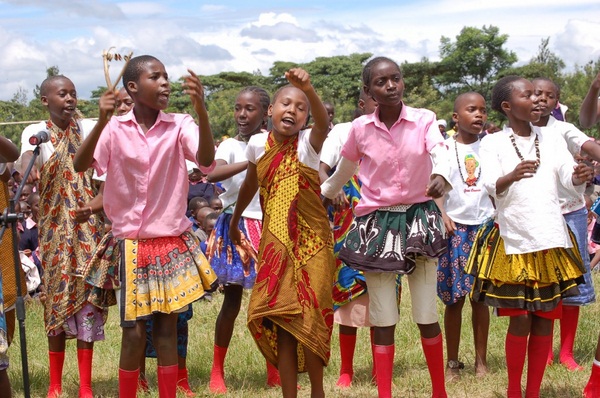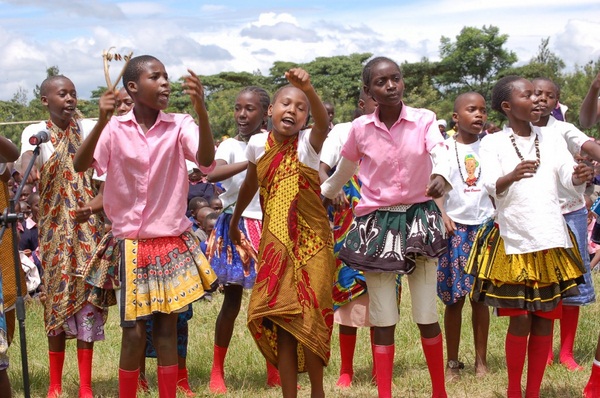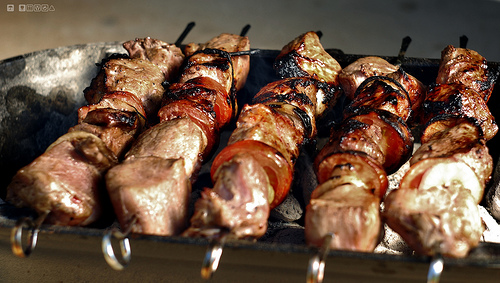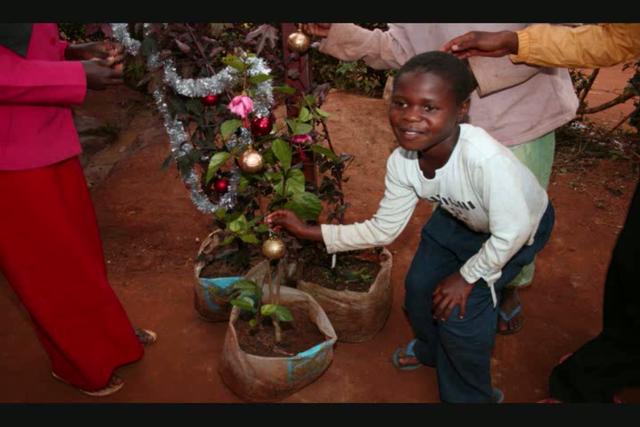

Most Kenyans in the cities have left their families in the rural areas for work or study reasons, so the first activity that marks the holidays is a mass migration of people back to the villages to their parents’ home. Although only about half the population is Christian (Muslims make up the larger part of the other half), everyone has holidays at this time of year.
For the Christians in Kenya, preparations start as early as October. In the pastoral communities, poultry, sheep and goats are chosen as early as September and reared for this occasion. By December 24, everyone has usually gathered in the rural home. The home is decorated in the morning with flowers and a Cyprus tree.
Christians attend church in the evening, for midnight mass. On returning from church, the party starts! There’s no time for sleep. A goat is usually killed for the occasion and the family will make traditional beer and the special dishes of their particular tribe. Plenty of singing occurs, starting with the traditional songs of the family’s tribe and finishing nowadays with Christmas carols.

Some people attend church on December 25, but it’s usually women and older men. Most people, however, are still partying and the celebrations continue through the day with more eating, drinking, singing and catching up with family members. For many, this is the only time of the year that they have the opportunity to see their families, so it is a very important time to reconnect.

Boxing Day, December 26, is the day for curing the hangover and giving gifts. A gravy-like soup made from the goat’s blood and bone is a typical (and sworn-by) hangover cure. Gifts are given if the family can afford such a luxury, although usually even something small is appreciated.
In KiSwahili, the greeting is “Heri ya Krismasi” (Merry Christmas) and the response is “Wewe pia” (You also).
